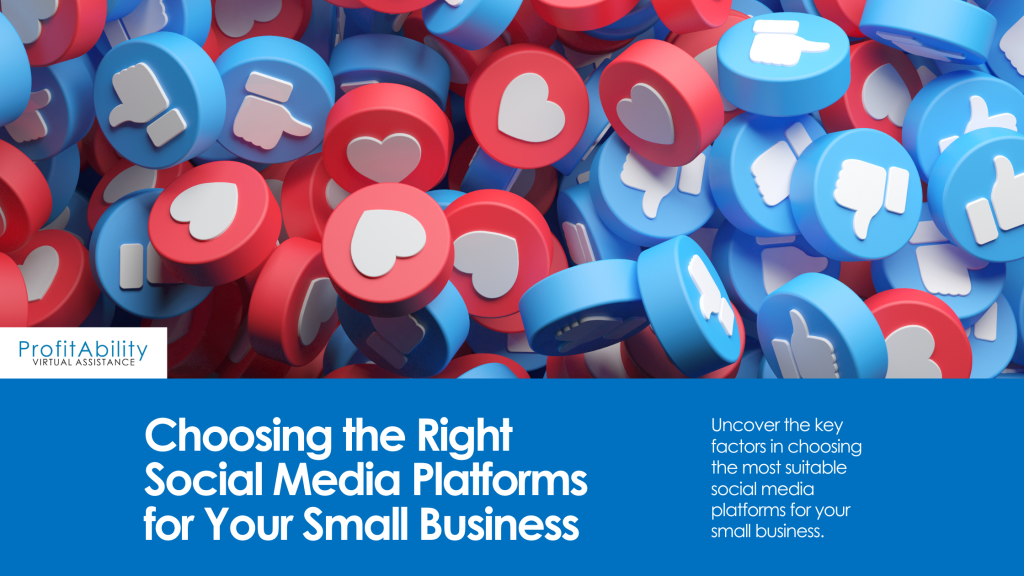Choosing the Right Social Media Platforms for Your Small Business
Spread the word! Share this article:

Navigating the world of social media can be daunting for small business owners. With numerous platforms available, each with its unique audience and style, selecting the right ones for your business is crucial.
Let’s explore how to determine which social media platforms are best suited for your business and target audience, which is a key to effective online marketing.
1. Understanding Your Audience:
- Demographics: Each social media platform caters to a different demographic. Understanding the age, location, gender, and interests of your target audience is crucial. For instance, Instagram and TikTok are popular among younger audiences, while Facebook and LinkedIn attract a more mature crowd.
- Behaviour Patterns: Knowing where your audience spends their time and how they interact online is key. Are they engaged more with visual storytelling on Instagram or professional content on LinkedIn?
2. Aligning with Your Business Type:
- Visual vs. Text-Based Platforms: The nature of your business greatly influences your choice. Visual-based businesses like art, fashion, and food can thrive on Instagram and Pinterest, which are image-centric. In contrast, service-based or B2B (Business to Business) businesses might find more value in the professional networking environment of LinkedIn.
- B2C vs. B2B: B2C (Business to Consumer) businesses often flourish on Facebook and Instagram, which allow direct consumer engagement. On the other hand, B2B businesses might find LinkedIn more appropriate for professional networking and lead generation.
3. Resource Allocation:
- Time and Effort: Consider how much time you can commit to social media. Platforms like Facebook and Instagram can be more manageable with less frequent, yet impactful posts.
- Content Creation Capabilities: Evaluate your ability to create engaging content. If you can produce high-quality videos, platforms like YouTube and TikTok can be advantageous.
4. Evaluating Competitors:
- Evaluating your competitors is also crucial. Look at where they have their presence and how they interact with their audience. This research can offer insights into what might work for your business.
5. Trial and Error:
- Don’t be afraid to experiment. The digital landscape is constantly evolving, and so should your strategy. Use analytics to gauge the success of your efforts and be ready to adapt.
Choosing the right social media platforms for your small business involves understanding your audience, aligning your business type with the platform’s strengths, managing resources, checking out competitors, and being open to experimentation. This strategic approach will help you maximise your social media presence, ensuring your efforts are targeted, efficient, and effective.
If you are keen for further guidance on the best social media platforms for small business, then be sure to book a complimentary strategy session with one of our social media experts!
Spread the word! Share this article:
Scale, Survive & Thrive
ProfitAbility Virtual Assistance specialises in Small Business Support for Business Owners










